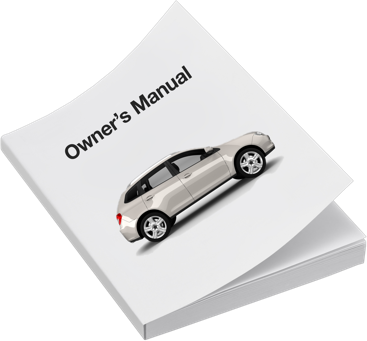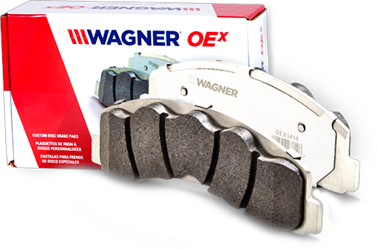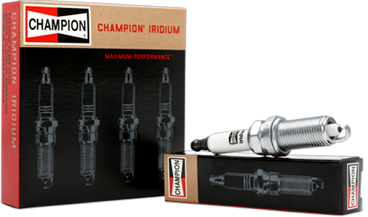Keeping up with Routine Car Maintenance
Prevention is the best medicine
We’ve all heard the old saying, “An ounce of prevention is worth a pound of cure.” This certainly holds true for your car. By following the recommended maintenance schedule for your vehicle, you are taking an important step toward extending the life of your vehicle and avoiding costly repairs.
Consult your car’s manual
Your owner’s manual is a great starting point for getting a handle on the routine maintenance necessary for your vehicle. Featuring a wealth of information including the recommended service schedule for your vehicle, your manual will tell you what procedures you should have done at what mileage intervals. Armed with this knowledge, you’ll be a more informed car owner who is ready to stay on top of the routine maintenance of your vehicle.

![]()
Making a List
Whether you’re ready to take on these maintenance jobs yourself or want to enlist the help of your trusted mechanic, a checklist can be helpful for keeping track of routine car maintenance. Click on the link below to download our handy basic car maintenance checklist.
While most service schedules published in owner's manuals are set up by mileage or time-based intervals for service procedures, this checklist is broken out by category to help you get a sense of what it takes to keep your car running on all cylinders. Read on to learn the routine maintenance jobs your vehicle should have on a regular basis.
Oil change
Whether you do it yourself or have the dealership or quick lube shop do it, changing your car’s oil and oil filter is important. Oil keeps the parts of your engine lubricated. Over time, the oil breaks down and isn’t as effective. Having regular oil changes done ensures your car’s engine parts continue to work smoothly.
The old standard of having your oil changed every 3,000 miles doesn’t hold true for most late model vehicles. Be sure to check your owner’s manual for the recommended mileage for an oil change to avoid needlessly wasting money on extra oil changes.
Brake Pads
You count on your brakes to work every time you approach a stop sign or traffic light. Don’t ignore your brake pads – the consequences could be costly. Your driving habits play a big role in how often your brakes will need replacing. If you are in a lot of
Keep an eye on your brakes by monitoring the wear indicator that comes on most brake pads. The metal tab will come closer and closer to the brake rotor as the pad wears down. When the tab hits the rotor, it will make a screeching sound to indicate that it’s time to get the pads replaced.

Tires
Providing traction and grip, your tires are the only thing between your car and the road. Ensuring that your tires are in peak condition is key to your safety. Just like brake pads, your driving habits have a big effect on the lifespan of your tires.
A built-in wear indicator helps you keep tabs on the tread life of your tires. Small ridges between the treads are where you’ll find the wear indicator on each tire. When the tire tread becomes even with the ridges of the wear indicator, you’ll know that it’s time for new tires.
Spark Plugs
Your engine’s spark plugs are a key component in the combustion process. Keeping an eye on your spark plugs for signs that they may not be working as effectively as they should be will help keep your car in proper working order.
If you notice a decrease in gas mileage and/or a drop in the performance of your

Lights and Wipers
Having a clear view of the road and being seen by other drivers are of utmost importance every time you get behind the wheel. Periodically check your lights – especially your headlights, taillights and brake lights to ensure that they are working. Replace any burned out bulbs immediately.
The same goes for your windshield wipers. Inspect your wiper blades on a regular basis for any tears, splits or other signs of wear. Damaged wipers won’t deliver a clear wipe, which can obstruct your field of view. Change your wipers as soon as you notice any issues with them.
ENGINE AIR FILTER
Keeping your engine from getting clogged with dirt, dust and debris is the job of the air filter. A dirty air filter can decrease your gas mileage and cause your engine to run rough. Changing it on a regular basis ensures your engine is taking in clean air.
Cabin Air Filter
No one likes to breathe in foul-smelling air inside their car. That’s where the cabin air filter comes in. Your vehicle’s cabin air filter ensures that the air inside your car is fresh. If you don’t change your cabin air filter, the filter will become more clogged with dirt and debris and the efficiency of the filter and your car’s HVAC system will be compromised.
BATTERY
Nothing stops you in your tracks like a dead battery. Ensure that your vehicle is ready every time you jump in the driver’s seat by inspecting the battery on a regular basis. Make sure the cables are on tight and clean any signs of corrosion with a copper brush. If you notice any leaks, cracks or bulges, it is time to replace your car battery.
If your battery is more than four years old, you may consider changing it before it leaves you stranded on the side of the road. Your trusted mechanic or auto parts store can test your battery to ensure that it’s holding a charge.
Learn more about vehicle maintenance products, find your car part, or find where to buy your auto part today.
The content contained in this article is for informational purposes only and should not be used in lieu of seeking professional advice from a certified technician or mechanic. We encourage you to consult with a certified technician or mechanic if you have specific questions or concerns relating to any of the topics covered herein. Under no circumstances will we be liable for any loss or damage caused by your reliance on any content.